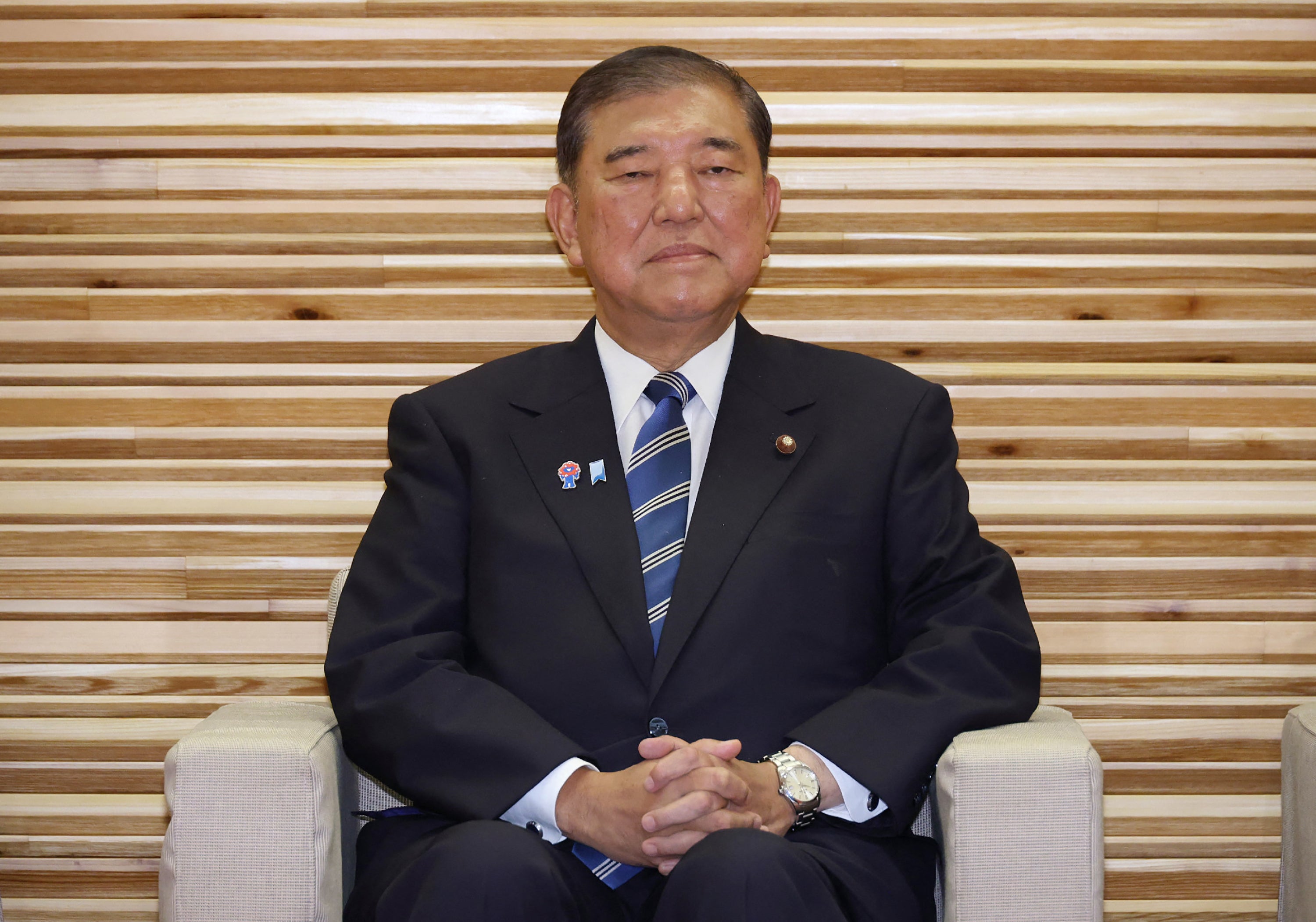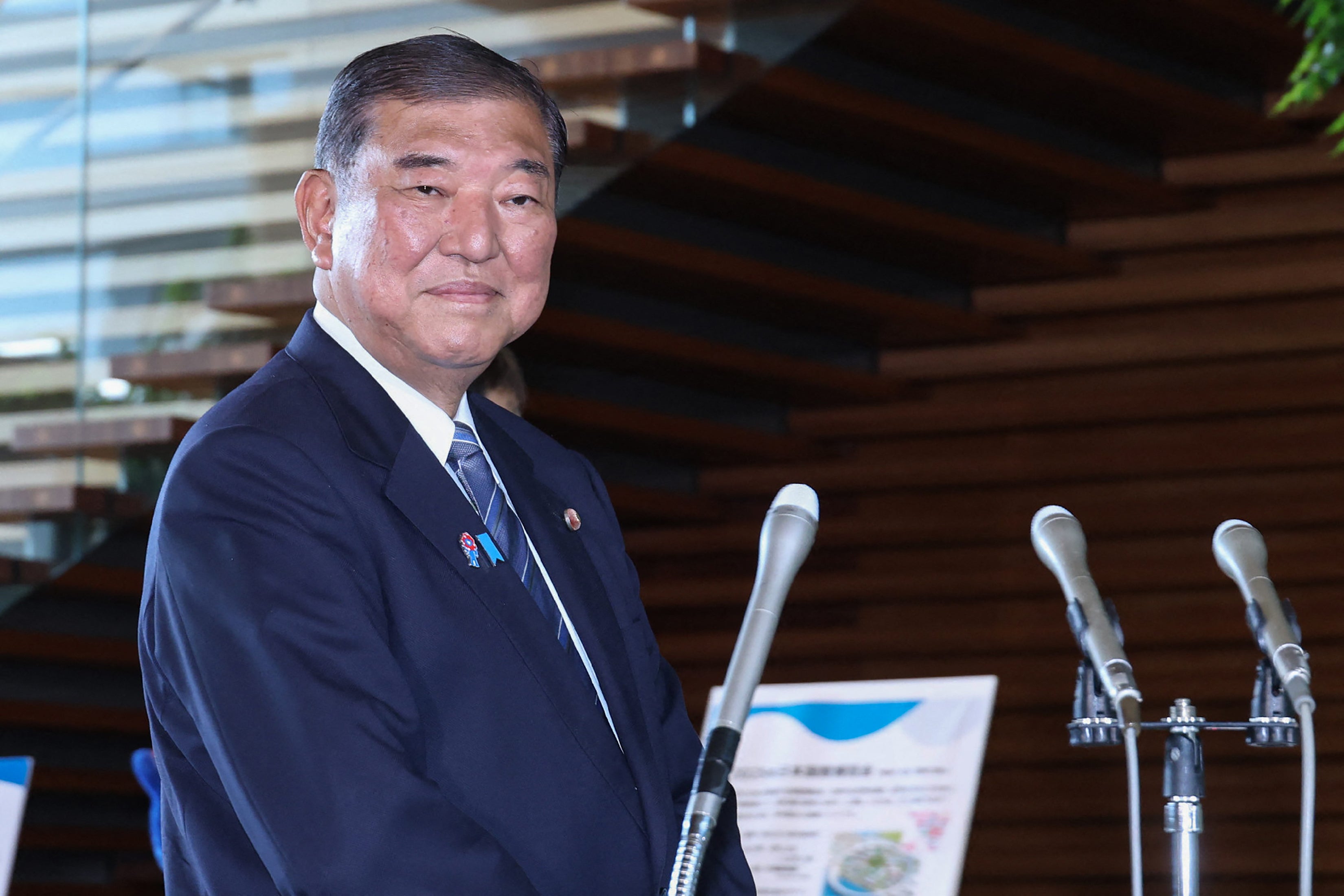Japanese prime minister Shigeru Ishiba has denied reports he plans to announce his resignation over a historic defeat of his ruling party in a weekend election, saying instead he wanted to make sure a new tariff agreement with the US is appropriately implemented.
The denial comes amid local media reports that he has informed his close aids that he is preparing to step down by the end of August following a significant electoral defeat and the conclusion of a high-stakes trade agreement with the US.
Mr Ishiba has been under growing pressure to step down as his ruling Liberal Democratic Party (LDP) and its junior coalition partner, Komeito, lost their majority in the 248-member upper house, the smaller and less powerful of Japan's two-chamber parliament on Sunday, shaking his grip on power and Japan's political stability.
The loss means Mr Ishiba's ruling coalition, which also lost a majority in the more powerful lower house in October, now lacks a majority in both houses of parliament, making it even more difficult for his government to achieve any policy goals and worsening Japan's political instability.
Mr Ishiba had announced his intention to stay on to tackle pressing challenges, including tariff talks with the US, without creating a political vacuum, sparking calls from inside and outside his own party for a quick resignation to respond to the election results.
Japan’s Yomiuri newspaper had earlier reported that Mr Ishiba told his inner circle on Tuesday that he would explain how he planned to take responsibility for the election results once trade negotiations with the US had been resolved.

The Mainichi and the Sankei newspapers also reported that his formal announcement is expected next month, once key national events conclude.
On Wednesday, US president Donald Trump wrote on his Truth Social platform that he had finalised a “massive” trade deal with Japan involving $550bn in Japanese investments into the US economy. The agreement also includes a reduction of tariffs on Japanese goods from a proposed 25 per cent to 15 per cent.
"This is a very exciting time for the United States of America, and especially for the fact that we will continue to always have a great relationship with the Country of Japan,” he wrote on Truth Social.
Mr Ishiba responded cautiously when asked about the impact of the deal on his political future. He said he will make a decision on resigning after closely studying the tariff deal just struck with the US. “I can’t say until I scrutinise the outcome of the agreement,” he told reporters, adding that he intended to speak with Mr Trump once he had been briefed by Japan’s chief trade negotiator, Ryosei Akazawa.
The 68-year old leader said media reports that he had already decided to resign were "completely unfounded", Reuters reported. Mr Ishiba chose not to quit straight after the election to prevent political instability as a 1 August deadline for clinching the trade deal approached, a source close to the prime minister told Reuters, asking not to be identified because they are not authorised to talk to the media.
The prime minister, who met party heavyweights and former prime ministers Taro Aso, Fumio Kishida and Yoshihide Suga on Wednesday at party headquarters, told reporters afterwards that they did not discuss his resignation or a new party leadership contest.
They only discussed the election results, shared the sense of crisis and confirmed the need to avoid party discord, he said.
Auto exports, which represent more than a quarter of Japan’s total exports to the US, will also see reduced tariffs under the agreement, Mr Ishiba noted, calling the 15 per cent rate “the lowest figure among countries that have a trade surplus with the US”.
Despite widespread calls for him to step down, the prime minister had argued that it would be irresponsible to vacate his position amid ongoing economic challenges. “I will stay in office and do everything in my power to chart a path toward resolving these challenges,” Mr Ishiba said in a news conference on Monday.
He is expected to meet senior LDP figures and three former prime ministers later on Wednesday to discuss the implications of the election results and his likely resignation.

Once Mr Ishiba formally steps aside, the ruling party must organise a leadership election to select his successor. However, with the LDP-Komeito coalition no longer holding a majority in either house of parliament, the new leader may face difficulty securing the required support in a parliamentary vote to become prime minister.
August is traditionally a politically significant month in Japan. This year, it includes commemorations of the atomic bombings of Hiroshima and Nagasaki, the anniversary of the end of World War II on 15 August, and the Tokyo-hosted international conference on African development from 20 to 22 August. Sources suggest Mr Ishiba is likely to resign only after these events have concluded.
Meanwhile, Mr Ishiba’s approval ratings have dropped sharply in recent days, with a major national poll showing support for his administration falling to just above 20 per cent – a threshold often considered unsustainable for a sitting government.
“What this means is that we’re sort of entering a period of speculation as to who’s going to be the next leader,” William Chou, deputy director of the Japan Chair at the Hudson Institute, told Bloomberg. “Right now it’s just a lot of speculation.”







